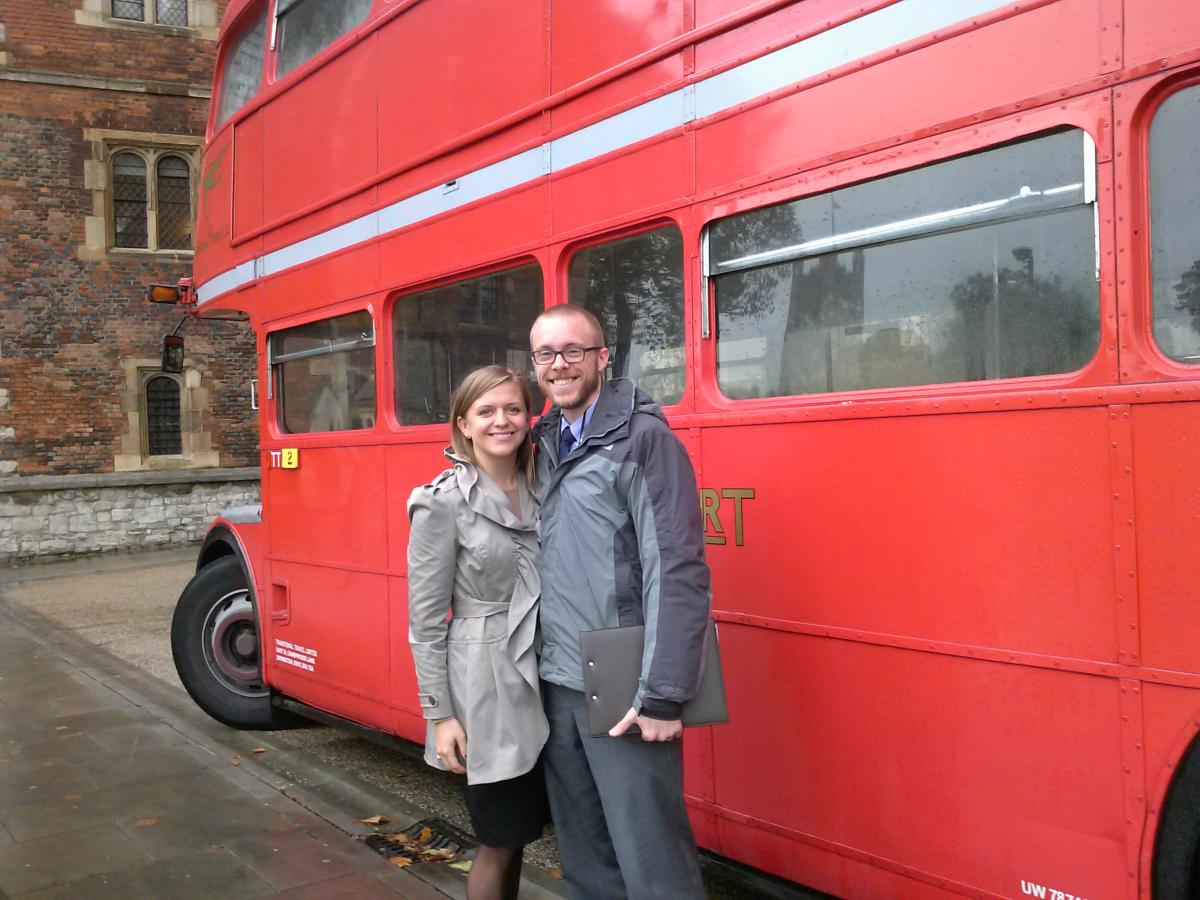Editor's note: Lucy and Daniel Strandlund from the Diocese of Alabama represented Seminary of the Southwest at the annual meeting of the Compass Rose Society in London on Oct. 12-13, 2014. Southwest is an institutional member of the Society. Lucy is a student in the MA in Spiritual Formation program and Daniel is an MDiv student. Both will graduate in May 2015.

By Daniel Strandlund
Representing Seminary of the Southwest at the Anglican Compass Rose Society meeting broadened our perspectives on who and what the Anglican Church is. Two anecdotes typify what I mean.
First, we attended a panel discussion in which the Rev. Dr. Sam Wells and Bernard Ntahoturi, Archbishop of Burundi (among others) made presentations. During Q & A, someone asked how the Church could be relevant in an increasingly secular and agnostic society. Sam Wells gave a brilliant and concise answer. When it was Archbishop Bernard's turn to respond, he essentially said, "We have many challenges in Burundi, but secularism and agnosticism are not among them." It was refreshing to hear that in places like Burundi the Anglican Church is not only relevant but actively shaping society.
Second, Archbishop Welby spoke to the Anglican Compass Rose Society (ACRS), and told us about his travels. One of Archbishop Welby's goals is to visit every province in the Anglican Communion. As of our meeting earlier this month, he and his wife Caroline had been to 33 of 37 provinces (not counting England itself, 38). The Archbishop pointed our attention to something Pope Francis has said, which is that if the Church is going to have a future, it must be a Church of the poor. Archbishop Welby told us how he'd witnessed great suffering in almost every province he's visited–but that he has also seen that the Anglican Church is always where the suffering is, doing what it can. He said, "In global terms, the Anglican Church is a Church of the poor." Not surprisingly, it took a few minutes for that to sink in. For most of us in the room–ACRS members primarily from the US and Canada–our experience of the Episcopal Church has been quite different.
It helped us realize that the work we're doing exists in one very small corner of a very large vineyard.

